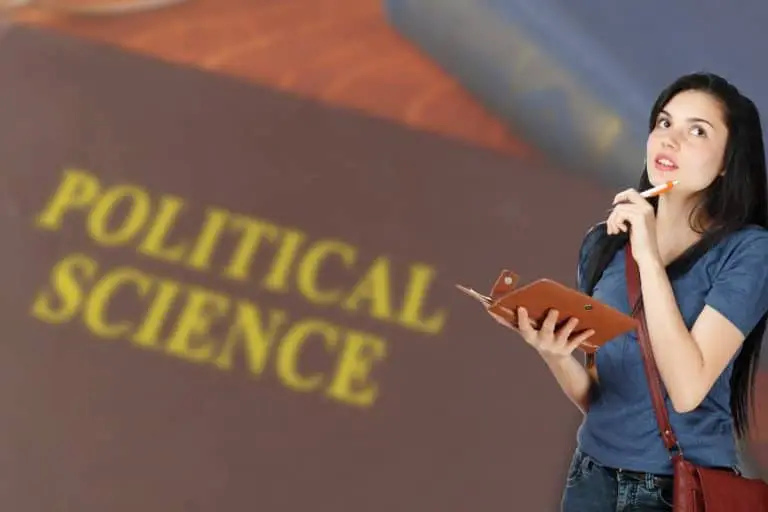Is AP Biology Easy? Let’s Dissect This!
AP Biology is a useful and rewarding class that prepares students for college-level coursework and scientific research. As such, it can be quite challenging. But can it be easy?
AP Biology is not easy because it covers so much content in a short period. Students must learn how to conduct data-driven scientific research while learning the fundamentals of at least eight major areas of biology, including cellular energetics, biochemistry, and ecology.
Read on to learn more about what makes AP Biology challenging, how it compares to other AP science classes, and how you can teach yourself the concepts of AP Biology on your own.
What Makes AP Biology Challenging
AP Biology is challenging because of the breadth and the depth of the course content. Students are expected to build a solid foundation for future study in any major field in biology, including a foundation in laboratory practices and research skills.
Because AP Biology courses are so difficult, those who succeed can expect to do well in future studies at the college level.

Topics That AP Biology Covers
AP Biology involves a heavy course load. Students must master every major concept in biology, separated into distinct foundational sections.
This class covers the following basic subject areas:
- Biochemistry: Chemical properties, structures, and functions essential to life (water, nucleic acids, macromolecules, and more.
- Cell Structure and Function: Membrane transport, facilitated diffusion, plasma, cell compartmentalization, and more.
- Cellular Energetics: Enzyme structure, catalysis, photosynthesis, and cellular respiration.
- Cell Communication and the Cell Cycle: Signal transduction, cell communication, cell cycle regulation, and other related topics.
- Heredity: Meiosis, genetic diversity, Mendelian genetics, environmental effects on phenotype, and chromosomal inheritance.
- Gene Expression and Regulation: DNA, RNA structure, replication, RNA processing, mutations, biotechnology, and more.
- Natural Selection: Population genetics, Hardy-Weinberg equilibrium, phylogeny, origins of life on Earth, and other topics.
- Ecology: Community ecology, biodiversity, energy flow through ecosystems, and disruptions to ecosystems.
Students also learn the following skills:
- Concept Explanation
- Visual Representation Analysis
- Scientific Method and Question Formation
- Data Representation and Description
- Statistical Analysis and Data Interpretation
- Evidence-based Argumentation
Sources: College Board and Khan Academy
Preparing To Take AP Biology
To prepare to take AP Biology, make room in your schedule for plenty of time for reading and studying outside of class hours. You’ll need to especially remember other classes you’re taking at the same time, which compete for your mental energy and memorization potential.
Some students find it helpful to take an introductory biology course before diving into AP Biology. That way, you have a basic understanding of the underlying course concepts before you get started.
You can also purchase your course materials ahead of time and spend time reviewing them yourself before the course begins. Take note of areas that are difficult for you to understand to discuss them with your teacher and fellow students.
Source: PrepScholar
Which Science Courses Are the Hardest?
AP Biology is among the hardest AP science courses based on the percentage of students who earn top scores on the final exam. Only 9.5% of AP Biology students earn a 5/5 on the final exam, compared with 10.6% of AP Chemistry students and 11.9% of AP Environmental Science students.
Although course difficulty is subjective, researchers use metrics to compare classes across different disciplines, like pass/fail rates and standardized test scores.
For example, one research team at St. Cloud State University showed that a high percentage of students earned low grades in or withdrew from Math, Chemistry, Physics, and History at the university level, concluding that these subject areas are the most difficult. Students in other disciplines, like Biology, were significantly more likely to earn high grades on average.
Interestingly, the opposite trend is true in AP classes.
By this metric, only AP Physics is more challenging than AP Biology, as just 8.8% of AP Physics students earn a 5/5 on the final exam. All AP science course exams are more difficult to ace on average than AP Math, English, and social science course exams.
How To Do Well in Science Classes
Doing well in science classes at the college level comes down to learning the critical thinking processes necessary for making sense of different theories. To a degree, you need to memorize facts, but it’s much more important that you know how to investigate a problem effectively.
Practice the process of scientific discovery by asking questions and looking to multiple sources to answer your questions.
Discuss your questions with your teachers and fellow students, as this mirrors how scientific theories develop in a community of peers. In general, you should make sure that you’re participating as much as you can.
Where you must memorize information, try using visual aids to help you see what you’re learning in a new way, and remember that repetition is key. Additionally, you should keep key examples and case studies in mind, as it’s easier to remember something that’s illustrated or demonstrated in some way.
Sources: CollegeBoard, St. Cloud State, and Education.com
Learning Biology on Your Own
Having an instructor and a structured classroom is beneficial to the process of learning complex scientific theories and methods.
However, it’s not the only way to learn what’s covered in AP Biology. You can even take the AP Biology exam on your own, without taking the course, and your score will count as college credit.
How To Teach Yourself AP Biology
By reviewing the content that AP Biology covers and practicing the skills the course requires, you can learn the same curriculum covered by this challenging class on your own.
AP Biology courses include lectures, reading assignments, and laboratory exercises to teach the core concepts and skills of biology. Without a teacher, you must put extra effort into reading thoroughly and learning laboratory concepts.
Textbooks will walk you through setting up and interpreting experiments, even if you don’t have equipment at home.
Finding the Right Textbook
If you’re teaching yourself, you’ll have your choice of textbooks. A few top AP Biology textbooks, according to College Board, are the following, all available on Amazon.com:
- Biology, 8th edition, by Campbell and Reece: Used in two out of three introductory biology courses for majors, sold to over 6 million students, used by 65% of all doctors and biological scientists under the age of 40.
- Life, 6th edition, by Lewis, Parker, Gaffin, and Hoefnagels: Includes real-life case studies and applications, combining depth of content and detail with visual appeal. It is meant for majors and non-majors.
- Biology, 13th edition, by Mader: Used for one or two-semester biology courses at the college level, meant for majors and non-majors.
- Biology, 12th edition, by Raven, Johnson, Mason, Losos, and Singer: Also available as an eBook from McGraw-Hill. It is made for majors, emphasizing the process of scientific inquiry in the study of evolution, molecular biology, and more.
- Biology, 8th edition, by Solomon, Berg, and Martin: Includes new research findings, in-chapter learning tools, and animated digital resources for an up-to-date and interactive learning experience.
- Asking About Life, 3rd edition, by Tobin and Dusheck: Made for majors or non-majors. It won the Texty Award from the Text and Academic Authors Association in the College Life Sciences category.
Simulating Laboratory Experiments
When teaching yourself biology, learning laboratory skills is key. The AP Biology curriculum involves a set of thirteen key labs, each investigating a key claim in biology.
See the following chart of laboratory experiments and their associated core concepts covered in an AP Biology course:
| Core Concept | Laboratory Experiment(s) |
| Artificial Selection | Grow plants for 1-2 generations, quantifying traits and choosing parents for the next generation. (see Fastplants.org for plant suggestions) |
| Mathematical Modeling: Hardy Weinberg | Count phenotypic frequencies and calculate the presence of associated alleles in a given sample. (see Hardy Weinberg Problem Set) |
Comparing DNA Sequences to Understand Evolutionary Relationships | Identify the sources of gene sequences and determine relationships between species. (see Name That Gene) |
| Diffusion and Osmosis | Watch the diffusion of iodine through a bag using cornstarch as an indicator. (see “How Can Diffusion Be Observed?”) |
| Photosynthesis | See what factors affect the rate of photosynthesis in living leaves. (see Waterweed Simulator) |
| Cellular Respiration | See what factors affect the rate of cellular respiration in multicellular organisms, using respirometers to measure oxygen consumption. (see Cellular Respiration) |
| Cell Division: Mitosis and Meiosis | Model or observe mitosis and meiosis; e.g., view slides demonstrating mitosis of an onion root. |
| Bacterial Transformation | Use HHMI virtual lab to alter the DNA of flies, studying the effects on circadian rhythms. |
| Restriction Enzyme Analysis of DNA | Use electrophoresis to analyze DNA samples, determining who are carriers of disease. (see DMD Electrophoresis Lab) |
| Energy Dynamics | Build an ecosystem of snails and plants in jars, recording changes in CO2 using btb as an indicator. (see Build an Ecosystem) |
Transpiration | Observe the rate of transpiration in plants by placing seedlings in plastic bags and measuring the rate that water is lost. (see AP Lab- Transpiration) |
Fruit Fly Behavior | Experiment with environmental triggers to see what causes a measurable response in fruit flies, daphnia, or isopods. |
| Enzyme Activity | Use liver and hydrogen peroxide to observe enzyme activity in numerous different conditions. |
There are also many online resources to guide you through the process of learning lab skills.
The following are all virtual laboratories that you can use to learn practical skills on your own:
- HHMI Biointeractive
- DataClassroom
- Jon Darkow’s Simulations
- Data Nuggets
- Learn Genetics: University of Utah
- PhET Interactive Simulations
- Biology! with the Amoeba Sisters
- BioRender
Preparing for the Exam
The AP Biology exam involves two sections:
- A series of sixty multiple-choice questions.
- A set of six free-response questions.
Each section lasts an hour and thirty minutes and counts for 50% of the final score.
Multiple-choice questions require that you choose accurate explanations of biological concepts, analyze diagrams correctly, and effectively use a set of given mathematical equations to draw conclusions from data. You must also be able to choose which pieces of evidence support scientific claims.
Free-response questions include four short questions and two long questions, testing your ability to do the following:
- Read and evaluate the results of an experiment.
- Graph data and draw conclusions.
- Understand laboratory procedures.
- Predict cause and effect within biological systems.
- Analyze a diagram or other visual representation of a phenomenon in biology.
One of the best ways to prepare for the AP Biology exam is by working through AP Biology practice tests. Peterson’s Test Prep offers a subscription to online AP Biology practice tests.
Alternatively, you can review past test questions and answers through College Board’s online resource hub.
You can also purchase an AP Biology test prep guide filled with example questions, like Test Prep Books’ AP Biology Test Prep Book (link to Amazon). This guide includes thorough explanations for each practice answer provided.
Conclusion
AP Biology is a challenging course that prepares students well for university science classes. The course is hard because it covers so many subject areas and demands that students learn a wide range of laboratory skills and data analysis techniques. Teaching yourself biology at the AP level requires dedication and access to the right resources.







